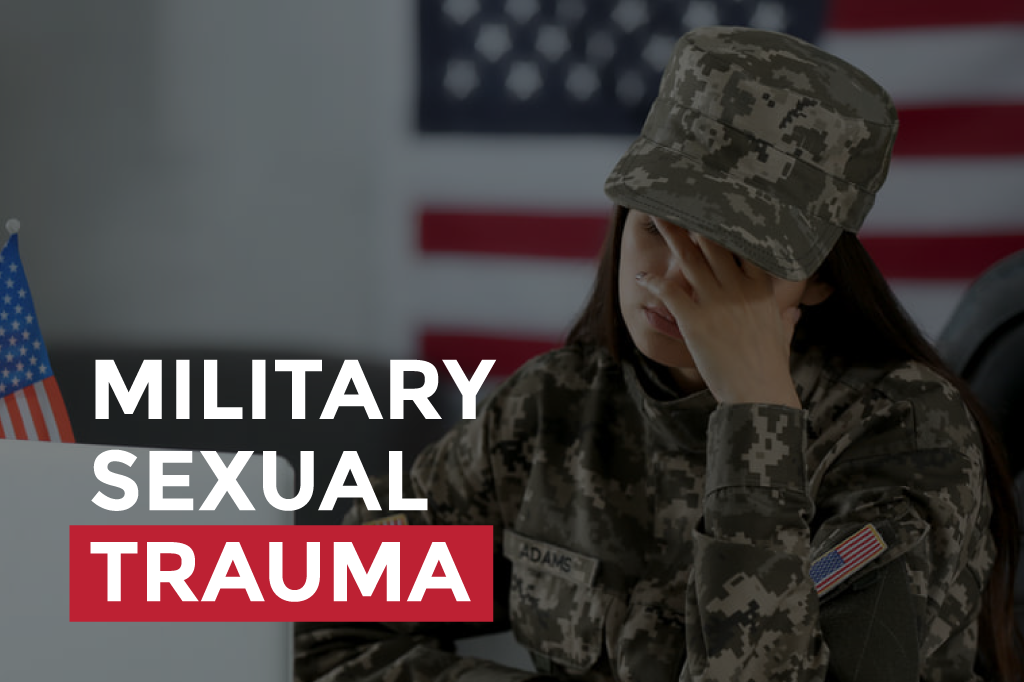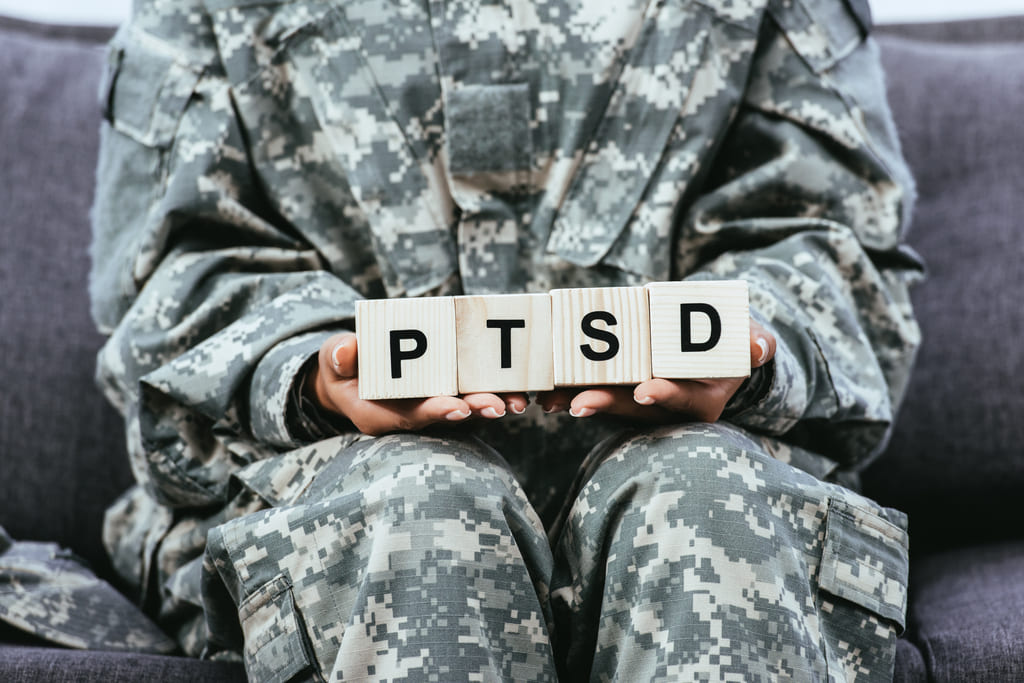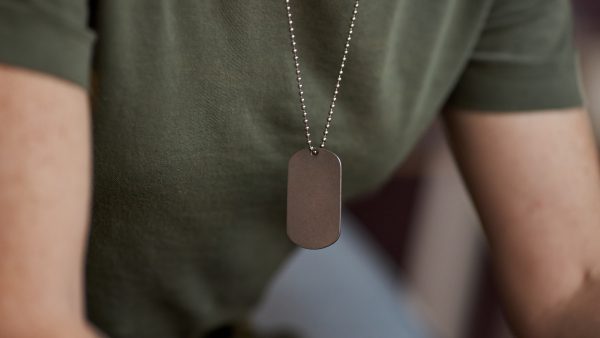Looking for Expert-Level VA Claim Answers?📱Call Us Now! 737-295-2226
In this guide, we’ll look at military sexual trauma (MST), key facts about how the VA recognizes this condition, and how to pursue VA benefits and compensation.
We’ll offer resources and information to help veterans and families understand the impact of MST and discuss how to file a claim for a mental health condition (such as PTSD) connected to MST.
Let’s begin.

- Recognizing and Addressing an Underrated Veteran Disability
- Military Sexual Trauma Defined
- Military Sexual Trauma or Sexual Assault: Scope and Statistics
- How MST Impacts Veterans
- WARNING: VA MST (Military Sexual Trauma) Claims and How Trauma Affects Veterans’ Mental Health!
- Diagnosis and Treatment Options
- How the VA Deals with Military Sexual Trauma
- Is There a Military Sexual Trauma VA Disability Rating?
- How to Get a VA Rating Linked to MST
- How to Prove I Was a Victim of MST
- Other Benefits and MST Resources
- Can I Sue the Military for MST?
- VA Claims Insider Supports Survivors of Military Sexual Trauma
- MAKE SURE YOU GET ALL THE BENEFITS YOU DESERVE
Recognizing and Addressing an Underrated Veteran Disability
Military Sexual Trauma (MST) is sexual harassment and or sexual assault experienced by a military service member. It is much more widespread and common than reported and is devastating and often disabling for those who experience it.
Military Sexual Trauma Defined
Military sexual trauma (MST) is a subset of personal trauma and refers to sexual harassment, sexual assault, or rape that occurs in a military setting or during military service. That would include any sexual activity that a veteran is involved with against his or her will.
Examples include:
- Being pressured or coerced into sexual activities, such as with threats of negative treatment for refusal to cooperate, or with promises of better treatment in exchange for sex
- Sexual contact or activities without your consent, including when you were asleep or intoxicated
- Being overpowered or physically forced to have sex
- Being touched or grabbed in a sexual way that made you uncomfortable, including during “hazing” experiences
- Comments about your body or sexual activities that you found threatening
- Unwanted sexual advances that you found threatening
The identity or characteristics of the perpetrator, whether a veteran was on- or off-duty at the time, and whether they were on or off base at the time is immaterial.
The VA states that it is “strongly committed to ensuring that veterans have access to the help they need in order to recover from MST.”
To learn more related to MST: Military Sexual Trauma
Military Sexual Trauma or Sexual Assault: Scope and Statistics
The scope of military sexual trauma is still not fully understood, but it’s clearer than ever that it’s a widespread issue, affecting hundreds of thousands or possibly millions of veterans.
If you have experienced MST, you are nowhere near alone. According to statistics from the 2023 U.S. Department of Defense annual report on sexual assault in the military, the Department received 8,942 reports of sexual assault involving Service members in 2022—up from 8,866 reports received in 2021.
Secondly, it’s estimated that more than two-thirds of all occurrences go unreported. It’s believed that only about one in three survivors chooses to report their assault. The odds are extremely high that you know someone who was the survivor of MST, even if you didn’t experience it yourself.
According to a study in the Journal of Clinical Psychiatry titled “Military sexual trauma in US veterans: results from the National Health and Resilience in Veterans Study,” 7.6% of US veterans screen positive for military sexual trauma, with substantially higher rates among female and younger veterans.
Anyone can experience military sexual trauma, regardless of gender. However, in this study, the overall prevalence was higher among female than male veterans (32.4% vs 4.8%). It was also higher in younger than older veterans (22.8% among veterans aged 18-29 years vs 4.5% among veterans aged 60+ years).
Although there may be some variables (such as prior traumatic experiences) that may increase risk or make an individual more vulnerable to the psychiatric and medical consequences of MST, it’s clear that military sexual trauma is a major healthcare issue that affects both sexes at all ages, and warrants further attention, community VA services (including a phone and text crisis line or safe helpline), and local VA health care.
How MST Impacts Veterans
Like other types of trauma, MST can negatively affect a person’s mental and physical health, even many years later.
According to the study mentioned above in the Journal of Clinical Psychiatry, “Military sexual trauma is associated with elevated rates of several psychiatric conditions and suicidality, reduced functioning and quality of life, and increased mental health treatment use—independent of other sociodemographic, military, and mental health factors. After adjustment for sociodemographic and military characteristics, MST was associated with elevated rates of current major depressive disorder, posttraumatic stress disorder, and generalized anxiety disorder.”
A review of studies called Military sexual trauma as a determinant in the development of mental and physical illness in male and female veterans indicated that military sexual trauma is related to an increase in psychiatric pathology, including posttraumatic stress disorder (PTSD), substance abuse and dependence, depression, anxiety, eating disorders and suicidal behavior. MST is also related to an increase in medical illness, primarily pain-related symptoms involving multiple organ systems, including gastrointestinal, neurological, genitourinary and musculoskeletal.
According to a report from the VA’s Office of Inspector General, women veterans who have experienced military sexual trauma are more than twice as likely as other women veterans to become homeless after leaving the military. About 40% of female MST survivors have experienced homelessness at some point after discharge.
How Military Sexual Trauma can Affect You
If you’ve experienced military sexual trauma, your experience could include:
- Disturbing memories or nightmares
- Difficulty feeling safe
- Feelings of depression or numbness
- Problems with anger, irritability, or other strong emotions
- Issues with sleep
- Physical health problems
You may also experience the following:
- Difficulties with attention, concentration, and memory: trouble staying focused; frequently finding your mind wandering; having a hard time remembering things
- Problems with alcohol or other drugs: drinking to excess or using drugs daily; getting intoxicated or “high” to cope with memories or emotional reactions; drinking to fall asleep.
- Difficulties with relationships: feeling isolated or disconnected from others; abusive relationships; trouble with employers or authority figures; difficulty trusting others
WARNING: VA MST (Military Sexual Trauma) Claims and How Trauma Affects Veterans’ Mental Health!
Diagnosis and Treatment Options
In order to be diagnosed with MST, two questionnaires can be completed. The first is The Sexual Experience Questionnaire. This is the most widely used measure of sexual harassment. To measure sexual assault, the Sexual Experiences Survey is used. The Sexual Experiences survey is a self-reporting tool that assesses various unwanted sexual experiences, this includes severity, duration, etc.
Treatment has been clinically shown to reduce psychological symptoms and improve the overall quality of life of the survivor. There are many options for seeking help for MST. Below are some widely accepted practices:
- Seek professional help. Every VA hospital has an MST coordinator. They are an advocate for those who have experienced MST.
- Lifestyle changes: exercise, volunteering, and maintaining strong support systems.
- Mindfulness: being aware of triggers and your mindset and then intently focusing on something that brings you joy (the taste of a favorite chocolate bar or a cup of coffee, a favorite song, etc.)
- Practicing optimism: focusing on positive things in your life, focusing on positive things that are in the present and are tangible
- Peer/support groups: finding a collective group of individuals that can empathize with your experiences can be cathartic. It can lend itself to removing that sense of isolation or shame.
- Being open-minded about treatment: because MST is so personal in its nature, it’s important to understand that everyone handles and recovers in their own way. It’s important to keep an open line of communication between yourself and your doctor and yourself and your loved ones.
There are outpatient and inpatient facilities within the VA when seeking professional treatment. Outpatient facilities will have you come in for weekly or bi-weekly visits. There are two widely accepted practices for the treatment of MST symptoms; exposure therapy and cognitive restructuring.
- Exposure therapy is repeatedly retelling your traumatic event until you begin to reform how you experience the memory and control how your brain reacts. This has been shown to be effective upfront; however, this can be damaging to long-term recovery.
- Cognitive restructuring is taking on a new approach to how your brain and body react to a traumatic event. It’s refocusing your negative thoughts and forcing them away from the traumatic event and instead focusing on positive thinking and healthy coping.
There are also in-patient facilities that are reserved for the most severe cases of MST. These in-patient facilities have separate sleeping facilities for male and female survivors. Some facilities even have separate programs for male and female survivors in order to reduce the anxiety of interacting with someone of the opposite gender. Learn more here.
From a claims perspective, PTSD MST claims, though sensitive and personal in nature, require carefully telling your story, having the proper diagnosis, and connecting all of these things together. For information about filing a claim for MST or getting more information, please don’t hesitate to reach out.
How the VA Deals with Military Sexual Trauma
The VA has officially made it a focus to better recognize military sexual trauma and provide assistance to those who have experienced it. Since 2002, the VA has been directed to consider claims for MST more liberally since MST is rarely reported when it first occurs.
As a result, evidence standards have been adjusted to take into account that most MST is not reported through official channels.
In 2011, the VA was directed to take MST even more seriously, and special training was provided for employees of the VA who conduct examinations. Because of this, the VA has been directed to look less at direct evidence to establish service connection and more at specific “markers.” These markers represent strong circumstantial evidence, such as signs, events, or circumstances that can validate the claim.
With these new guidelines, the VA saw increased approvals for MST-related conditions. For example, in 2011, nearly 60% of all claims for PTSD unrelated to MST were accepted, while only 35% of claims for MST-related PTSD were accepted. Those numbers are now nearly identical.
Still, the VA still has a long way to go, as stories continue to surface of veterans wrongly denied in their MST claims, including PTSD claims arising from military sexual trauma. A 2018 report from the VA Inspector General’s office called “Denied Posttraumatic Stress Disorder Claims Related to Military Sexual Trauma” found that during just a six-month period in 2017, VA officials improperly refused benefits to more than 1,300 veterans (most of them women).
Is There a Military Sexual Trauma VA Disability Rating?
There is no VA rating specifically and directly for military sexual trauma. Since MST isn’t directly provided a rating by the VA, some may assume they have no chance of getting the benefits they need.
Thankfully, this isn’t true. The VA doesn’t recognize MST itself as a ratable condition, but you can receive compensation for conditions (such as PTSD) that result from it. Claims for conditions caused by MST are common and more accepted than ever before.
See: PTSD MST VA Rating Percentages (0%-100%)
Still, because military sexual trauma is hard to talk about or think about, and there is often shame and stigma associated with it, it’s often overlooked as a disability to pursue.
Don’t let the lack of an official “MST VA rating”—or shame or fear—stop you from getting the support you deserve. Military sexual trauma can be extremely debilitating, and we strongly encourage you to pursue the highest level of benefit you earned while you recover and heal.
You DESERVE a HIGHER VA rating.
Take advantage of a VA Claim Discovery Call with an experienced Team Member. Learn what you’ve been missing so you can FINALLY get the disability rating and compensation you’ve earned for your service.
How to Get a VA Rating Linked to MST
The Link Between MST and PTSD, Depression, and Anxiety
As detailed above, MST is an underlying cause of or associated with many physical and psychological conditions. Most veterans who have experienced military sexual trauma subsequently suffer from PTSD, depression, anxiety, or other diagnosed mental health conditions. They may experience one or several of these conditions.

While these conditions need not necessarily be permanent, they can cause severe symptoms while you have them, and you deserve to receive the benefits you need as long as you’re dealing with these debilitating conditions.
It’s possible to receive a 100% rating for any of these conditions if they are severe enough, but the most commonly accepted claim is for PTSD. PTSD resulting from MST (informally, “MST PTSD”) is also the condition where you are most likely to receive a 100% VA rating.
There are notable connections between MST and the onset of PTSD. Analyses have revealed MST was more strongly associated with PTSD than other pre-military or post-military trauma. Women with MST have the greatest increased odds of developing PTSD.
Filing Your Claim for PTSD Caused by MST
When filing your claim for MST, ensure that you have the following:
- Current diagnosis from a medical provider of PTSD
- Evidence of an in-service event, illness, or aggravation
- Personal statements written by you with credible supporting evidence (use VA form 21-4138; learn more info on this form here)
- Buddy letters describing the PTSD symptoms related to MST (use VA form 21-10210)
- You need to use Statement in Support of Claim for Service Connection for post-traumatic stress disorder (PTSD) secondary to personal assault (Effective July 2024, there’s a brand-new VA Form 21-0781, statement in support of a claim for mental health conditions due to an in-service traumatic event.)
- A Nexus letter connecting your diagnosis to your military service
Related: How to Complete VA Form 21-0781
With service connection established, the VA will consider the severity of symptoms and then assign a rating. This means that they will look at the full effect of all your symptoms, not just the severity of one or two.
The VA determines a disability rating after reviewing service medical records, MST C&P exam reports, and any other evidence submitted to them in support of the veteran’s claim based upon an established list of criteria. VA examiners will also seek to establish that your symptoms are not due to other issues like substance abuse, medication side effects, or other illnesses.
It’s entirely possible to get a 100% VA rating for PTSD caused by MST. As discussed previously, it used to be harder to get approved at all for PTSD suffered as a result of MST. While that gap has narrowed substantially, it’s still important to have a solid strategy while filing your claim, especially in order to get a full 100% rating.
With PTSD, a 100% rating is assigned when you are considered to be totally socially and occupationally impaired and also experience the majority of symptoms/situations listed below.
- Gross impairment in thought processes or communication
- Persistent delusions or hallucinations,
- Grossly inappropriate behavior
- Persistent danger of hurting oneself or others
- Intermittent inability to perform activities of daily living (like personal hygiene)
- Disorientation to time or place
- Memory loss of names, work, and other relevant knowledge
Fortunately, you don’t have to meet all the subjective symptoms under the rating criteria for PTSD in order to get the 100% disability rating. Your adjudicator will look at the overall effect of the symptoms and give an “occupational and social” rating; however, the final and official mental health rating will be based on the severity of your symptoms.
Mental health disability claims can warrant a rating of 0%, 10%, 30%, 50%, 70%, or 100%.
For more information on MST ratings, criteria, and filing a PTSD claim, see:
MST VA Ratings
How To File a VA Claim for PTSD
How to Get a 100% VA Rating for PTSD Caused by MST
In some cases, MST-related PTSD may be so severe that it’s difficult or impossible for you to work. If your military sexual trauma-related PTSD interferes with maintaining employment, you may qualify for a 100% disability rating even if your other symptoms don’t rise to the 100% level. Unemployability is another way to get a 100% rating.
Also, see “How To Get A 100% VA Rating for PTSD Caused by MST”
The good news is that PTSD is one of the easiest VA claims to win. It is among the top 4 claims approved by the VA. In fact, 13.3% of all veterans who have been granted a VA disability claim for Mental Health, including PTSD, have received a 100% rating—much higher than most other disability claims.
How to Prove I Was a Victim of MST
For any VA disability compensation claim to be successful, there must be the following:
- A current physical or mental condition that affects your body or mind; and
- An event, injury, or illness that happened while you were serving in the military; and
- A link between your current disability and the event, injury, or disease that happened during your military service.
In all claims, the VA will look for evidence that establishes the event (of assault or harassment), proof that the event caused or aggravated your condition, and proof that you are still suffering from the condition.
It would be helpful if the incident was reported while still serving in the military, as such records will assist the VA in determining the connection. However, as explained, the VA now recognizes that many events are so traumatic that they’re not reported until much later, so not having a military record of the event will not derail your claim.
When you’re preparing to submit your evidence for the claim, fill out the new VA form 21-0781. This form is specifically for those who are filling a claim based on MST. The information requested in this form will assist you in supplying the evidence needed for your claim.
Again, if you experienced MST, the VA will relax the standards for evidence needed to prove that your condition was service-related. Because so much sexual trauma goes unreported, evidence is accepted from sources that other claims would not allow. Here are some examples of those options:
- Department of Defense sexual assault or harassment reporting forms
- Investigative Reports completed during military service
- Law enforcement reports
- Mental Health Counseling Centers
- Hospitals
- Requests for transfer to another military duty assignment
In addition to the sources of evidence listed above, veterans who have current posttraumatic stress disorder (PTSD) or other mental health conditions related to their experiences of MST can also submit indirect sources of evidence. These may be behavioral events, patterns of changed behavior or circumstances (markers) that provide clues that the traumatic event happened. They do not have to provide definitive evidence that it did.
Some examples are:
- Change in work performance at the time
- Episodes of the following without clear cause:
- Anxiety
- Depression
- Journals or personal diaries
- Panic attacks
- Pregnancy tests
- Records from official sources
- Civilian physicians
- Civilian hospitals, health clinics, mental health counseling centers
- Civilian law enforcement o Rape crisis centers or centers for domestic violence
- Relationship issues, like divorce
- Requests for transfer to another military duty assignment
- Sexual dysfunction
- Statements from others
- Chaplains or clergy members
- Counselors
- Faculty members
- Family members
- Fellow service members
- Roommates
- Substance abuse
- Tests for sexually transmitted diseases
- Unexplained social or economic behavior
Be sure to visit a medical professional and be as detailed as possible about your symptoms, the frequency of those symptoms, and how they impact your day-to-day life.
To receive a 100% rating, the VA will look for specific details to determine whether you are fully disabled.
You will need a nexus letter from the medical professional explaining how your PTSD is linked to military sexual trauma. Remember, specific proof isn’t necessary, but the note must explain how it is “at least as likely as not” that your PTSD was caused by the traumatic event you experienced.
Gather and submit other evidence necessary to substantiate your claim. Again, the linking of PTSD to MST now has a relaxed standard regarding specific evidence since military sexual trauma can be difficult to prove definitively. This is where it will be important to record all the “markers” discussed earlier and submit them with your claim.
Gathering buddy letters from those who knew you before and after the event may be helpful. Family, friends, or fellow service members will be able to testify to the markers they’ve noticed since your trauma occurred. These letters can greatly help substantiate your claim.
Other Benefits and MST Resources
Veterans may be eligible for specific, free MST-related care. Due to the relaxed eligibility rules associated with MST, many of the standard requirements are excused.
The VA provides free treatment for any physical or mental health conditions related to MST without requiring documentation of the MST experience or a VA rating. The VA also provides MST-related outpatient counseling through its Vet Centers.
There’s an MST Coordinator at every VA health facility to serve as a contact for MST-related issues. They’re there to assist veterans in getting the care they need for MST and to answer all of your questions.
Many facilities have separate programs for men and women, for cases in which the veteran who experienced military sexual trauma is uncomfortable being treated by someone of the opposite sex. Be sure and speak up at the time of scheduling if this applies to you.
As with other disabilities, it’s possible to receive monthly non-taxable compensation from the VA for conditions linked to MST if it’s service-connected. Other benefits available are:
- Health care
- 10-point hiring preference for federal employment
- Pension
- Caregiver program
- Career services
- Education assistance
- Home loan guaranty
- Insurance
Beyond MST Mobile App
The VA offers this free, secure, and private self-help mobile app created specifically to support the health and well-being of survivors of MST. The app has over 30 specialized tools and other features to help MST survivors cope with challenges, manage symptoms, improve their quality of life, and find hope. Users don’t need to create an account or be in treatment to use the app. Personal information entered in the app is not shared with anyone, including the VA.
Also see: Help for Veterans Distressed by Recent Events Related to MST and Violence Toward People of Color. This covers suggestions and resources for connecting with care for MST survivors and others feeling pain and distress due to events related to MST (as well as violence toward people of color).
To learn more about help with treatment and health care related to experiences of MST, please contact your local VA medical center and ask to speak to the MST Coordinator.
Can I Sue the Military for MST?
Yale Law School reports several lawsuits against the VA related to military sexual trauma.
Richard Oppel, Veterans Agency Is Sued Over Handling of Trauma Cases, The New York Times, April 30, 2014
Mary O’Leary, Yale Law School suit alleges Veterans Administration biased against sex assault victims with PTSD, New Haven Register, April 30, 2014
PRO TIP: It’s possible to get a 100% disability rating if you’ve experienced MST. It’s possible to receive a 100% rating for any of the associated mental health conditions if they’re severe enough, but the most commonly accepted claim is for PTSD.
VA Claims Insider Supports Survivors of Military Sexual Trauma
VA Claims Insider recognizes and has great compassion for the suffering caused by military sexual trauma. We have female coaches who can educate you with your claim, and access to many resources and VA services related to MST. If you’ve experienced MST, we can help you get a plan in place for you and your claim.

MAKE SURE YOU GET ALL THE BENEFITS YOU DESERVE
Regardless of what state you live in, it’s important that you pursue the monthly compensation payments due to you for disabilities connected to your military service.
Most veterans are underrated for their disabilities and therefore not getting the compensation they deserve. At VA Claims Insider, we help veterans understand and take control of the claims process so they can get the rating and compensation they’re owed by law.
Our process takes the guesswork out of filing a VA disability claim and supports you every step of the way in building a fully developed claim (FDC)—so you can increase your rating in less time!
If you’ve filed your VA disability claim and have been denied or have received a low rating – or you’re not sure how to get started – reach out to us for a FREE VA Claim Discovery Call so you can FINALLY get the disability rating and compensation you deserve. We’ve supported more than 25,000 veterans to win their claims and increase their ratings. NOW IT’S YOUR TURN.




